Dominic Chapman
Staff. Computer Games Art & Technology
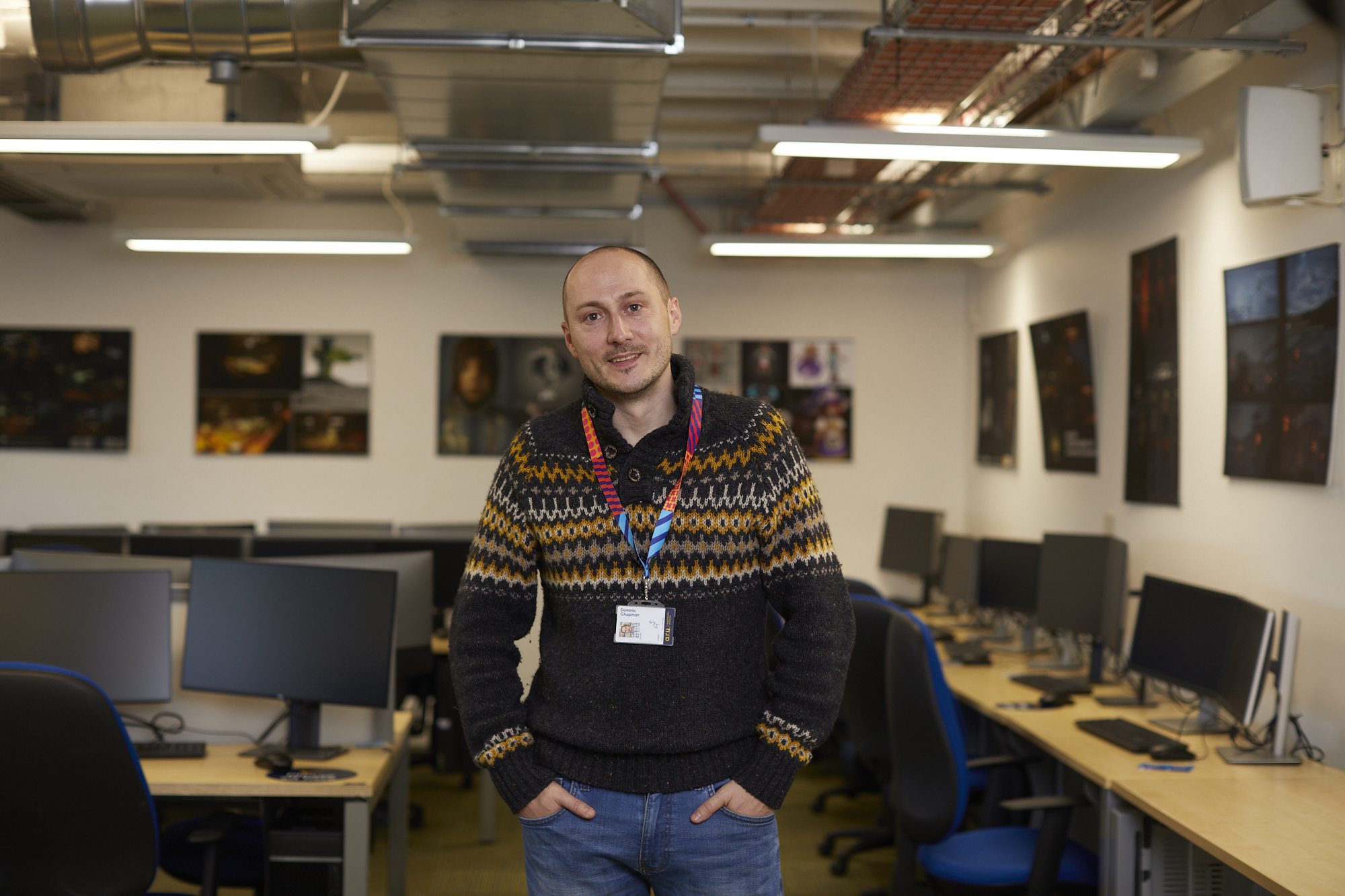
Independent game developer Dominic Chapman has been building immersive game worlds for the last 15 years and is the course leader for both Computer Games Art BA and Computer Games Technology BSc – the course he chose as a student.
What was it like going from student to teacher?
Having been a student, and then coming back years later to teach, meant that I understood the experience that the current students were having on the course. Every university course will change over time based on feedback and as a student I had been involved with that process as the elected student representative. This meant that as a lecturer and graduate I was really invested in the future direction of the course. So, when after a few years of teaching I was offered the position of course leader I took it as my opportunity to give the students the best course that I could.
One of the experiences of being a student that I remember being incredibly useful, was when lecturers offered a real insight into the industry and shared examples and solutions from their own game development experience. Now as a lecturer myself, and having been in industry, I try to do the same thing for my students. It’s really satisfying being able to help students as they shape their ideas and create a space for their work to become the best it can be. And I‘ve found it particularly rewarding to be able to help students build their portfolio into something they can be proud of, as well as open their minds to all of the different career paths available to them.
What one thing (piece of art, writing, design, music, historical event etc) inspired you to do what you do now?
I was really influenced by media with amazingly enriched worlds, such as the Lord of the Rings books. But there was one old game called Transport Tycoon, which let you control all the transport systems and infrastructure in a simple 2D world, which really inspired me to become a game developer. It came out around the same time as Sim City, part of the wave of world-simulation games in the early 90s. Even though I played lots of different genres of games, I fell in love with the ones where you could shape the world, that gave you a real sense of making an impact on things and where you didn’t feel restricted by anything.
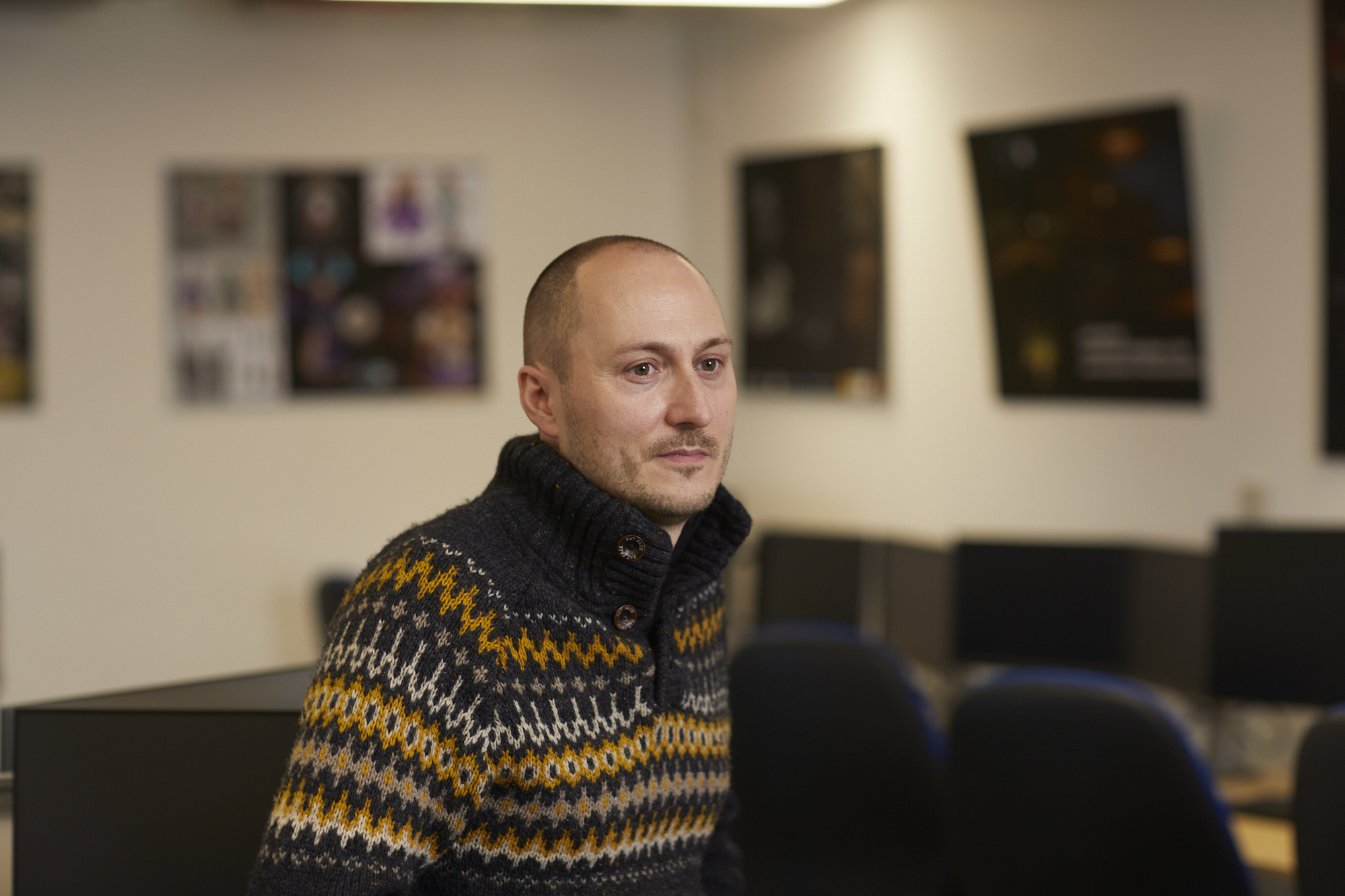
“I like world building. Creating engaging environments with a rich background and history that players can put themselves at the centre of, creating their own character and immersing themselves in it.”
What’s the most valuable thing you took away from education?
As a 1st year student I entered The Big Pitch, a competition run by ARU where students pitch their business ideas to a panel of experts. I managed to win with an idea for an online tool to create your own games. I wanted anyone, no matter their skill level, to be able to let their creativity run wild without worrying about all kinds of technical hurdles.
The final presentation was my first real experience of standing in front of a large audience, just me and my idea, no backup. I was used to working as part of a team, and out of the spotlight, so it really helped to open up my confidence doing something like that. I was so glad I took the chance to do something out of my comfort zone. That’s one of the things about higher education, it’s not just about learning new information, but new experiences as well.
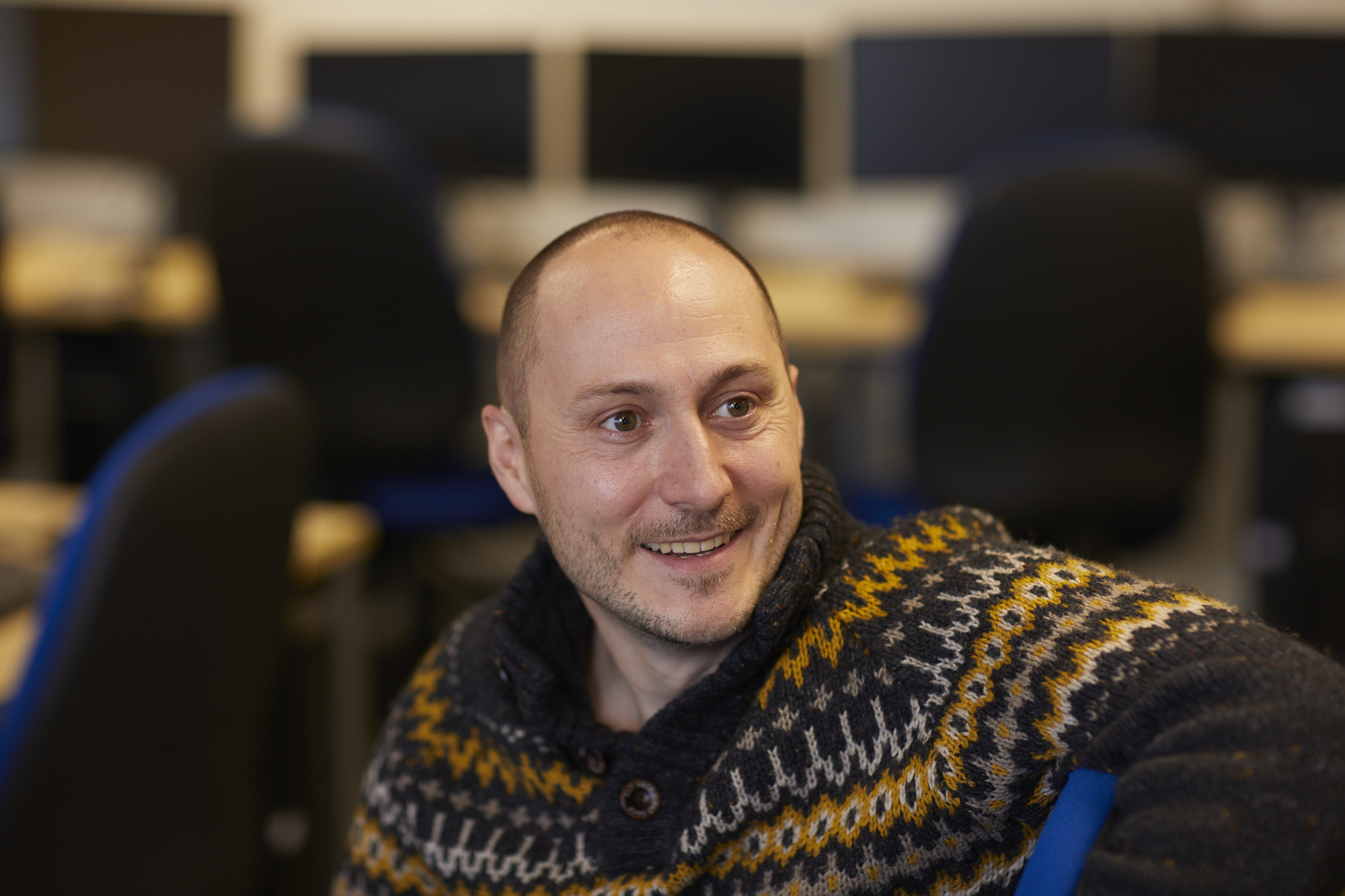
What piece of advice would you give to students wanting to get into the industry?
Grab every single opportunity that you can. Universities provide access to so many great opportunities you might not get again, but only if you’re willing to use them. Whether it’s the chance to work at a games company for a week, attend an industry event or get the chance to playtest an unreleased game; it doesn't matter how good a network ARU has if you never make use of it.
Likewise, I’d also recommend doing extra things outside of your course, like getting involved in societies and clubs. It’s a great way to not only explore what interests you, but also to meet new people and be exposed to different perspectives and ideas. That’s true for anyone, but especially so if you think of yourself as a creative person. And not to get too mercenary, but employers do like it when it’s clear that you’ve got interests that actively engage you, not just a checklist to fill a CV. Don’t forget this is everything you pay for! Access to the library, facilities and networks are all part of the experience.
Final piece of advice, I promise. This one is sort of my most personal. I used to be quite shy, and it’s something I’m open about with my students because so many of them are too at first. That can be tough in an industry where you’re frequently called upon to pitch your ideas and present stuff. What I say is, and it worked for me, ‘fake it till you make it’. If you act confident, eventually you’ll feel it.
What do you like about Cambridge – what’s here that people might not know about?
There’s a group called the Cambridge Game Creators, who usually meet every month in the Blue Moon Pub around the corner from ARU. It’s basically a mixture of indies and industry practitioners as well as people who just enjoy games. Everyone shows up to talk about their work, have a drink and socialise – you can meet some really talented game developers there, some that might be very well known. It’s a great way to make friends and meet interesting people. I think most people really enjoy when you can get stuck into some long conversations about things you’re all super passionate about.
Where now
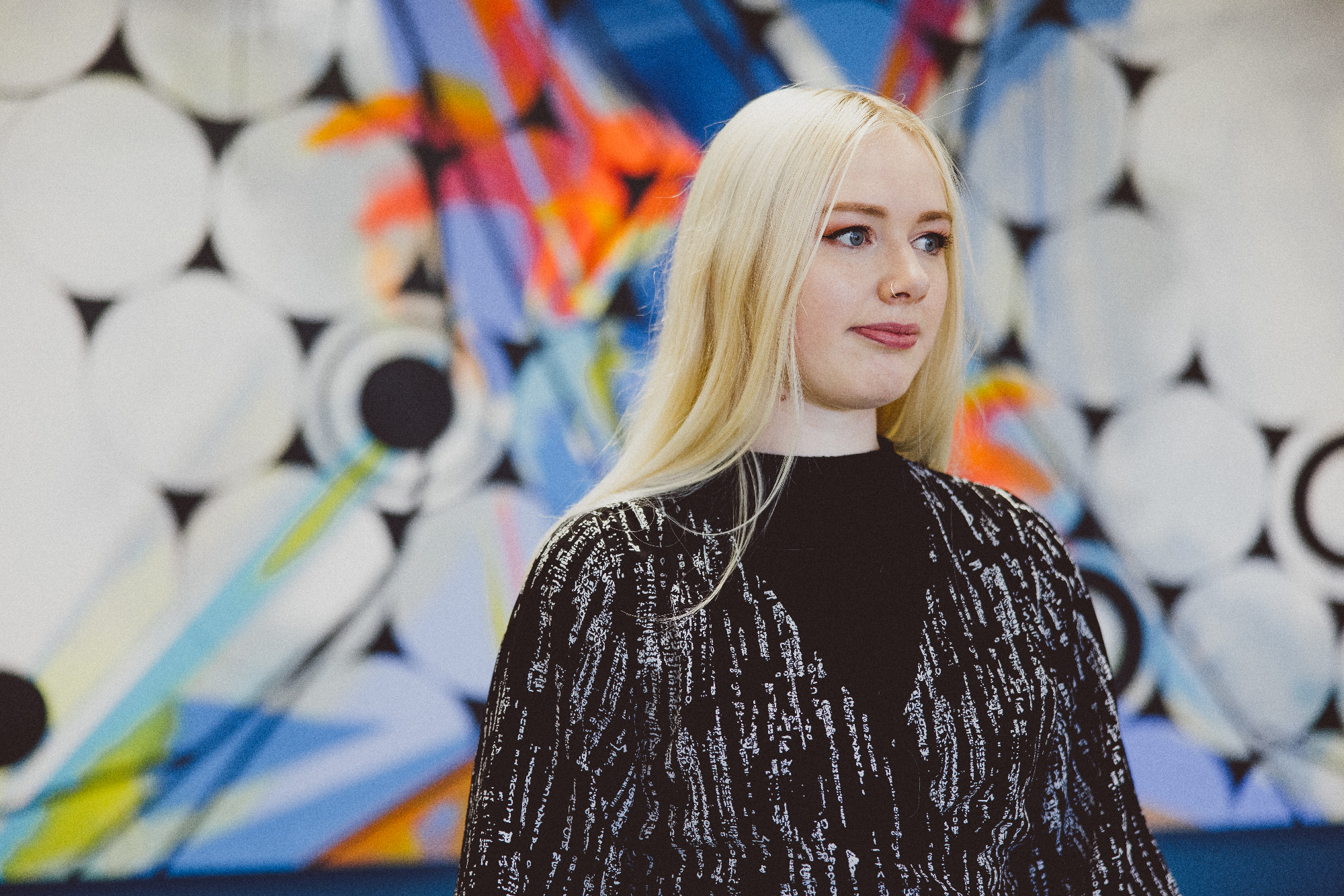
People
Holly Akrill
Holly Akrill is a Lecturer on the BA (Hons) Computer Games Art course, and a game developer and artist.
Meet Holly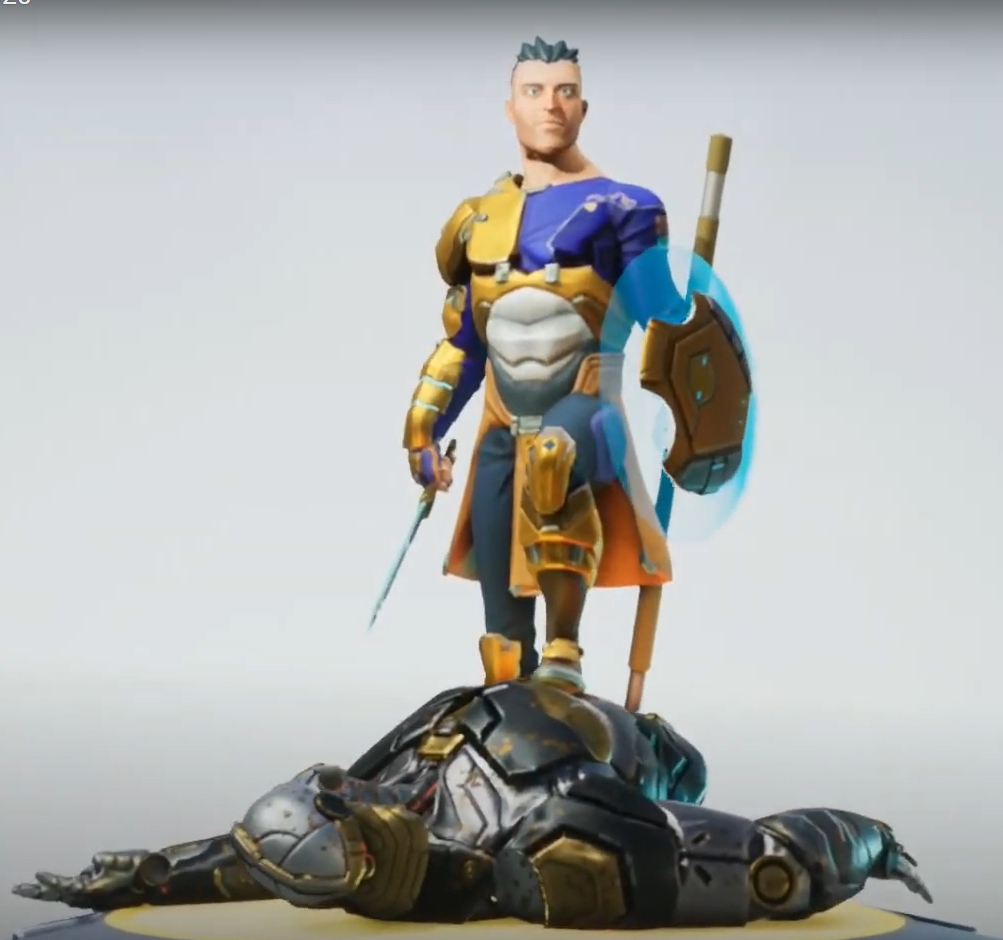
ARU
BA (Hons) Computer Games Art
Accredited by TIGA, our Computer Games Art degree will allow you to develop art skills relevant to the fast-moving computer games industry.
Find out more